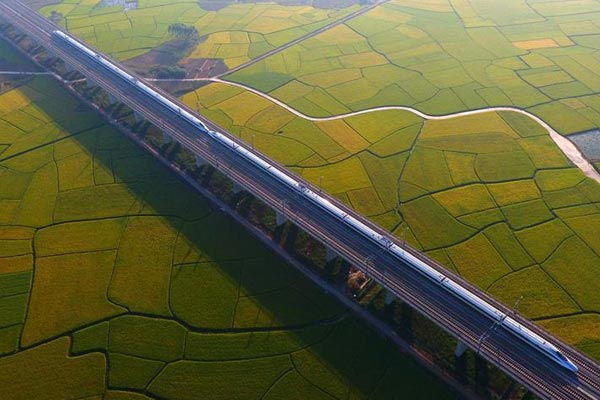Are bailout hopes fuelling a Chinese debt bubble?
Zhu Ning, oceanwide professor of finance at Tsinghua University in Beijing, believes people are prepared to take investment risks in China because they sense the Chinese government will always bail them out.
The leading academic argues such behavior is fueling a debt bubble which could put at risk the stability of the economy.
"We have had a few high-profile defaults in the bond market this year in which the government has intervened," he said.
"It sometimes creates situations where people jump into these bonds after they have heard the news of a default. The price has dived and they will buy them because they know they will be bailed out."
Zhu spent the summer in the US promoting his new book, China's Guaranteed Bubble, at the Brookings Institution, the IMF and the World Bank.
The Chinese version has sold 35,000 copies so far, making it one of the top 50 best-selling economics books in China.
"The book is getting quite a lot of interest and attention. I'm often surprised about how little China is being understood, even sometimes among people who are supposed to be experts." Government guarantee is not unique to China but the way it works in practice is, he said.
He argues that no other government in the world has the same firepower to sort out financial messes as they arise. China's foreign exchange reserves have increased from $200 billion yuan ($29.4 billion) in 2001 to $4.5 trillion in 2013.
"I think what is special about China is that the government has far more resources than other governments internationally because of this very vibrant economic growth that has built up these reserves."
Zhu, who is also deputy dean of the Shanghai Advanced Institute of Finance, a leading think tank, said one of the big risks to the economy at present is the property market, where prices have soared by 30 percent in tier one cities like Beijing and Shanghai this year.
"I have met people who claim concepts such as rental yield (which are at historic lows in China because of high property prices) do not apply in China because everyone in the country is trying to move and live in the big cities," he said.
"I think the scariest moment of a bubble is when everyone believes there is no bubble."
Zhu said what is of particular concern is the alarming, rapid rise in China's debt from 160 percent in 2005 to 247 percent in 2015, according to Bloomberg Intelligence.
He insisted it was always the speed of the debt rise that caused crashes such as the South Sea Bubble in the UK in the 18th Century and Japan's in the 1990s.
"Many economies, especially developing ones, hit a crisis point when their debt-to-GDP ratio gets to only 70 or 80 percent but they have this pattern of fast acceleration instead."
Zhu does not accept that China is protected from a debt crisis because its debt is owed internally rather than externally, which was the case with the Asian countries caught up in the financial crisis in the late 1990s.
But he reiterates the Chinese government has the ability to avert any financial meltdown. "I think we're at a crossroads where we can still avert a crisis."























